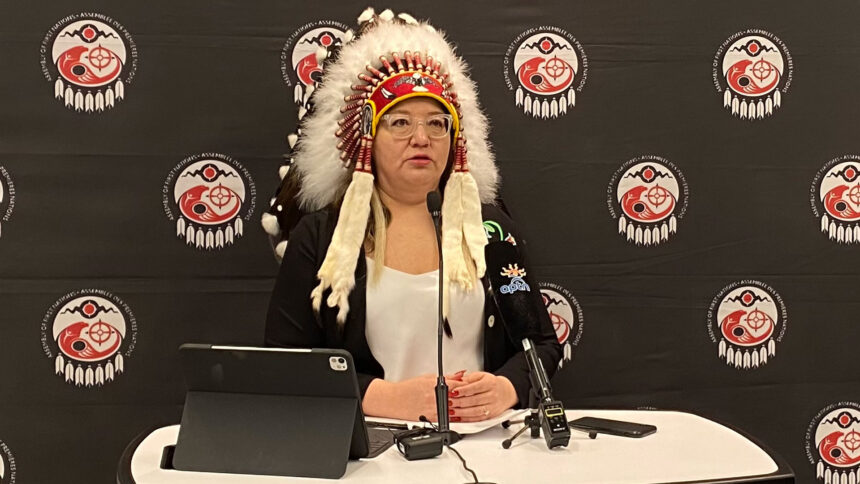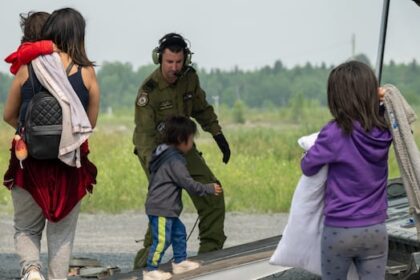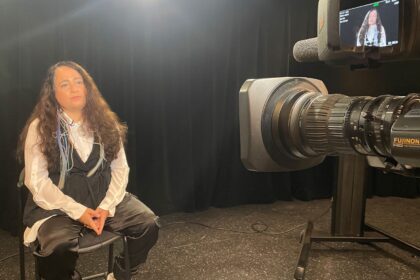The federal budget is getting mixed reviews from Indigenous organizations with a number saying it misses the mark when it comes to addressing the massive socioeconomic gaps their communities face. The budget froze annual base funding for Indigenous health and social services and for treaty work. Ottawa says that the freeze amounts to a two per cent cut at a time when most federal agencies face a 15 per cent cut. Cindy Woodhouse Nepinak, national chief of the Assembly of First Nations National, said Wednesday that the freeze will have serious impacts on communities with high birth rates, and has no plan to address the education gap. “Sadly, yesterday’s budget did not include any generational investments to close the First Nations education gaps that exist in this country,” she said at a news conference in Ottawa. “Instead of closing the socio-economic gaps between First Nations and non-Indigenous Canadians, this budget is going to make things worse. Ignoring those long-standing gaps and and environmental standards will not help fast-track resource extraction.” Woodhouse Nepinak noted that more than half of the Truth and Reconciliation Commission’s recommendations a decade ago related to education. “This budget was a chance to build some of that trust. Sadly, it has failed, has failed to meet that moment,” she said. AFN National Chief Cindy Woodhouse Nepinak at a news conference in Ottawa reacting to the budget. Photo: Fraser Needham/APTN. She said she was glad to see the government stick to its Indigenous housing commitments and praised the announcement of $2.3 billion over three years for water access on reserve and $10.1 million over three years for consultations on fast-tracked major projects. But she accused Ottawa of pursuing “trickle-down economics” that don’t set up youth for success. AFN Regional Chief for Manitoba Willie Moore said the Carney government seems only interested in investing in First Nations infrastructure if communities are collaborative in resource extraction projects. “Recognizing that reconciliation is about respect and it’s about justice and meaningful engagement and not on conditional generational investment that is tied to resource extraction,” he said. “The most effective way to secure the future success of First Nations children and our Canadian economy is to invest in education,” she said, adding that chiefs have invited Prime Minister Mark Carney to address their national assembly next month. Inuit Tapiriit Kanatami president Natan Obed praised the budget’s promises of investments in the Arctic, and particularly its support for an Inuit university. But he said Inuit are troubled that the document framed Arctic policy in terms of security and national sovereignty without explaining how the region’s original inhabitants fit into that policy. “We want to be partners with the Government of Canada, and all Canadians, in upholding Arctic sovereignty, in defending our borders, in working to do all that we can in this difficult time to make this country prosperous,” he said. “All we’re asking on the other side is for a very clear consideration of the way in which we interact with the federal government.” He said the previous Trudeau government was better than the current one at working with Indigenous Peoples. “It wasn’t necessarily the absolute dollar and cents that was allocated to an initiative. It was also how rights-holding Indigenous peoples worked with the Government of Canada on implementing shared ambition and shared goals,” he said. The Assembly of Manitoba Chiefs called a news conference to address the budget. Photo: Jared Laforme/APTN. He cited the fact that the budget mentions housing targets for the territory of Nunavut but not specifically for Inuit, many of whom live in other regions of Canada. “Unfortunately, the lens in the budget is largely not considerate of Inuit communities and families in the way it describes territorial sovereignty,” he said. Obed said it was particularly troubling that the budget did not break down funding between the three major Indigenous groups in Canada: First Nations, Inuit and Métis. He said that will result in lengthy discussions with departments and possible legal battles over how much each group receives. “It diverts specific implementation work to general lobbying and wrangling work, which is much more time-consuming,” he said. The organization also said it was “disturbed” that the budget did not renew funding to eliminate tuberculosis in the North, or set out for future years funding for Inuit children caught in jurisdictional squabbles between governments over services. Read the document here: Budget 2025 Métis National Council President Victoria Pruden said the MNC was relieved to see cuts in funding to Crown-Indigenous Relations and Northern Affairs and Indigenous Services were capped at two per cent and not as deep as some had feared. But at the same time they are disappointed there was very little in terms of Métis specific funding. “What’s missing in this budget is the level of commitment to distinctions-based funding for Métis governments,” she said “Distinctions-based funding to ensure that Métis citizens, Métis businesses are being supported in the way that they need to be at this moment in time.” The Manitoba Métis Federation praised the budget for sticking with past housing and child welfare pledges. According to the budget document, programs for urban Indigenous peoples will receive $34 million for the 2025/2026 fiscal year and then no funding for the next four years. ‘I’m really concerned that reconciliation with Indigenous peoples is going to be contingent upon how we can demonstrate our benefit to the economy,’ says Jocelyn Formsma. Photo: APTN. National Association of Friendship Centres CEO Jocelyn Formsma said this means about a 75 per cent funding cut for her organization. “I think I am just really worried about what it signals for where this government is heading with reconciliation,” she said. “I’m really concerned that reconciliation with Indigenous peoples is going to be contingent upon how we can demonstrate our benefit to the economy and that’s not really what reconciliation was supposed to be about.” The budget still needs to pass in the House of Commons which will require the support of at least one of the major opposition parties since the Liberals are two votes shy of a majority. With files from the Canadian Press. Continue Reading
Indigenous leaders say budget misses historic opportunity to address socio-economic gaps

Leave a Comment










